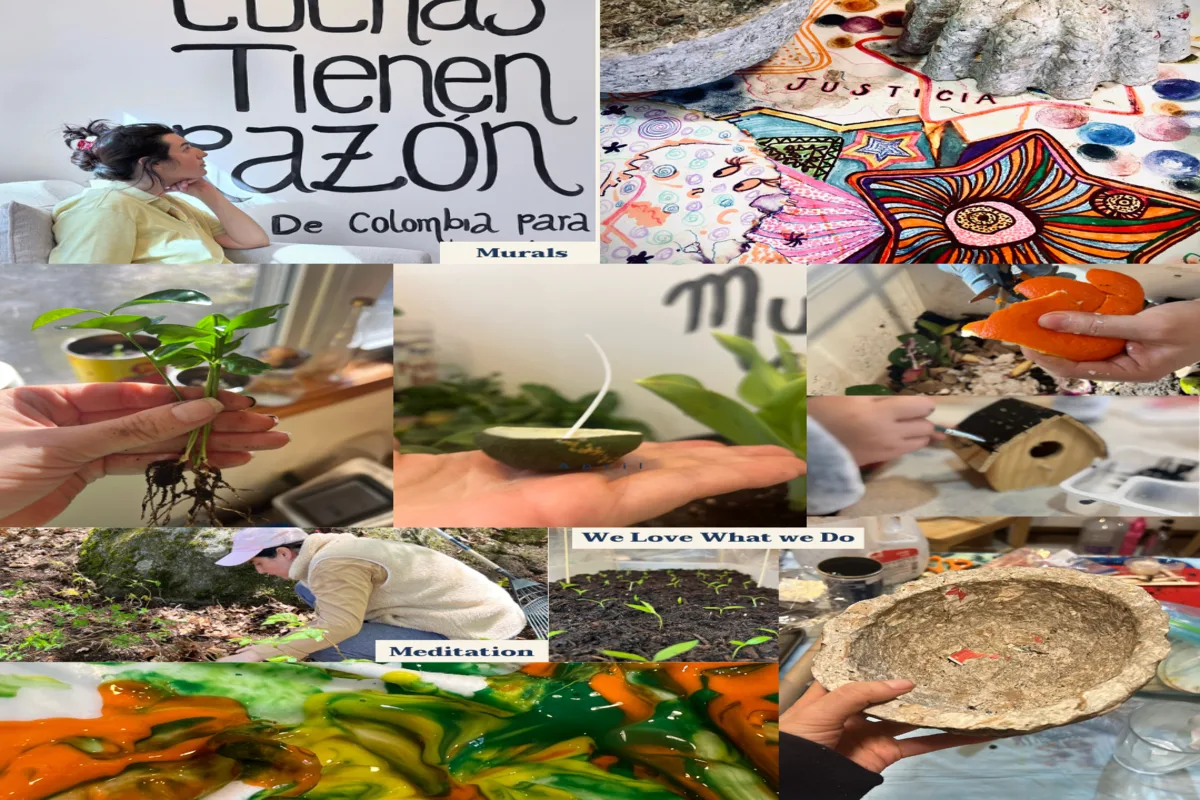Sustainability as Community Practice and Territory of Resistance
Sustainability as Community Practice and Territory of Resistance

“If the body is territory, then the environment is not outside—it is within. And when that environment is sick, so is the community. Yet where crisis devastates, other forms of life begin to grow—rooted in memory, solidarity, and art.”
– Doomo Editorial
Mainstream climate discourse is often delivered in abstract terms: carbon emissions, 2030 targets, multilateral agreements. But far from the panels in Geneva or Washington, millions of people experience ecological collapse as a daily condition—damp walls, undrinkable water, and the silence of fields where birds no longer sing.
The most impacted populations—migrants, Indigenous peoples, rural communities, and racialized women—not only live in territories most exposed to environmental degradation, but also lack access to so-called “adaptation mechanisms”: insurance, public services, climate-resilient infrastructure.
In cities like Chelsea (USA) or Quibdó (Colombia), environmental justice is not a public policy—it is an unfulfilled promise. In neighborhoods without trees, without shade, without clean air, the environment is not an idea—it is survival.
Environmental degradation affects more than just physical landscapes. Increasingly, it is tied to deteriorating physical and mental health, especially in impoverished communities.
The rise of eco-anxiety, ecological grief, and climate trauma are not merely psychological trends. They are structural responses to sustained environmental dispossession. In migrant contexts, this distress is layered with grief for lost land, language, and climate cycles.
“There is no mental health on a collapsing planet. But there is no care for the planet without dignified bodies.”
Mainstream “sustainable development” models are built top-down: governments design, corporations invest, and communities adapt. This narrative erases centuries of community-based knowledge, agroecological traditions, land-based spiritualities, and collective organizing.
In response to false techno-fixes, communities are building popular ecologies:
● Urban gardens and backyard food production
● Communal kitchens focused on food sovereignty
● Seed, water, and energy sharing networks
● Waste transformation and composting workshops
● Community-led soil recovery and environmental education
● Artistic spaces of healing, ecology, and collective reflection
These efforts do more than help people survive. They produce knowledge, redefine sustainability, and resist the death-driven model.
In this landscape, art is not ornamental—it is political. A tool for translation, healing, and mobilization.
Whether through recycled cardboard sculptures, poetic composting sessions, street performance, or earth-painted bodies, art can express what data cannot: grief, exhaustion, dignity, and the longing to live differently.
At Casa de Artesanos, these practices take form in workshops, collaborative pieces, and pedagogy that integrate art, health, and ecological awareness. They are spaces where trash becomes soil, the body becomes territory, and creativity becomes resistance.
Art is not decoration—it is a tactic. And in contexts of structural violence, it is also therapy.
At Doomo Editorial, we believe that critical communication is not about simplifying scientific data—it is about listening to those who sustain life daily, despite erasure.
This article does not attempt to solve the climate crisis. Instead, it aims to expand the questions:
● What do we mean by “environment” when there are no forests, only rooftops?
● Who narrates the future when politics remain binary and extractive?
● How do we weave, from below, an ecology of care, of the body, of memory?
Against extractivism, erasure, and systemic forgetting, art, community, and the word remain as tools for planting.